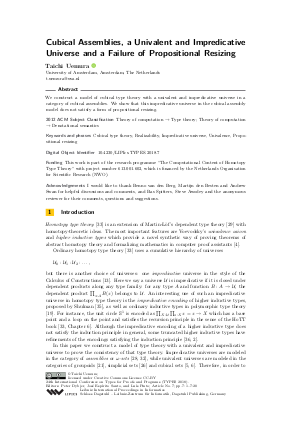LIPIcs.TYPES.2018.7.pdf
- Filesize: 0.54 MB
- 20 pages

 Creative Commons Attribution 3.0 Unported license
Creative Commons Attribution 3.0 Unported license





Feedback for Dagstuhl Publishing